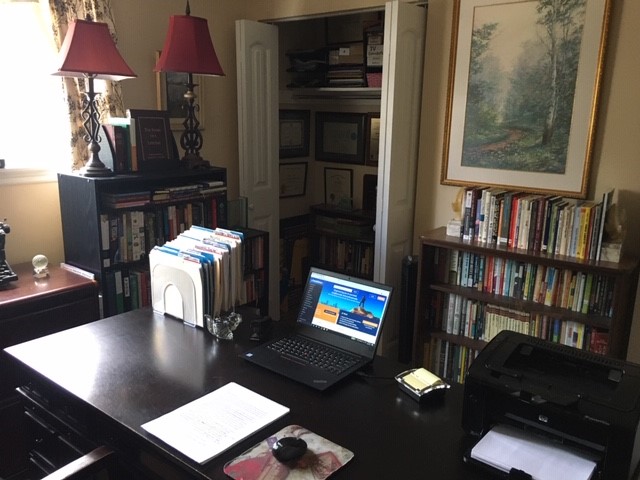After learning more about our brain, how it is wired, and its impact on our productivity, I changed my mind about trying to ignore my email until later. I discovered that it requires exceptionally strong willpower and a huge loss of personal energy to resist the urge to check email in the morning before I buckle down to work on that important, but not always delightful, priority of the day. And do you really want to expend that much energy before you start your day’s work?
Roy Baumeister, an American psychologist, and author of the book, Willpower, says we only have a finite amount of willpower as we go through the day. To resist temptation, muster willpower, and ignore your inbox consumes a lot of energy. What is the impact of this on our subsequent productivity when we resist this natural urge?
If I have an itch, I scratch it and get on with my life. Otherwise, it would bother me all day.
Studies described in Scientific American Mind (May/June 2011) have shown that people who exert themselves mentally, such as resisting the temptation to check email, give up on problems sooner when presented with them immediately afterwards. The brain is programmed to take the path of least resistance to conserve energy.
So, for those reasons and a few others, I posted an article online in 2016 titled, “Always check email in the morning!” The reasons I gave were basically that we are by nature, curious, which puts us into a mental multitasking mode, wondering what might be in the inbox while trying to concentrate on our priority task.
And we also knew by then that things left undone create anxiety and stress, which in themselves are known energy consumers and productivity killers. David Levinson, in his book, The Organized Mind: Thinking Straight in the Age of Information Overload, published in 2015, said that the awareness of an email waiting to be answered, for example, can reduce our IQ by10 points.
The mental energy consumed by exercising willpower is on a par with that required to make decisions or solve problems. In his book, When: The Scientific Secrets of Perfect Timing, Daniel H. Pink discusses the effect of timing on our lives. He describes the impact that decision-making was shown to have had on parole boards. Prisoners who came before the board in the early morning were granted parole 70% of the time while those appearing in the late afternoon were granted parole less than 10% of the time. And some of the cases they approved in the morning were very similar to those rejected in the afternoon. It wasn’t simply a matter of being more productive and mentally alert in the morning; it also showed the effect of decision-making fatigue on the part of the board members.
The energy consumed in mustering willpower to resist a natural urge to check email is on a par with that required to make important decisions.
Daniel Pink, in the same book, When: The Scientific Secrets of Perfect Timing, described research at Duke University where they reviewed about 90,000 surgeries to examine adverse events during anesthesia. The probability of a problem at 9 a.m. was about 1 percent and by 4 p.m., it had increased to 4 percent.
Some people may use facts like these to argue that you should not waste energy checking email in the morning, but to spend it on important work instead. But checking email for a half-hour does not consume the amount of time and energy that is required to make decisions all day that have life-affecting consequences for others, such as was the case in the parole board example given above. But my 2016 article went unheeded.
It was not wrong to resist checking email in the morning, based on the information available at the time. Making one trivial decision after another, such as what happens when handling your e-mail, does create some neural fatigue, leaving less energy for the important projects you will be working on later. That’s a fact determined by scientific researchers and admittedly seems to support the recommendation to not check e-mail first thing in the morning.
But what is not considered is the fact that there is now a lot more evidence of time wasted by not checking e-mail in the morning. And a lot more energy is consumed on your priority project than is needed for the trivial decisions usually involved in handling your e-mail. Anything important in your e-mail that needs to be followed up could be scheduled for some time later. It is unlikely that anything in your morning email would justify delaying your scheduled priority. If it is more important, then it should replace what you were planning to work on. There’s nothing wrong with changing your priorities. First things first. You wouldn’t think twice about energy loss or anything else if your child were in danger, for instance.
I have since learned of even more reasons for checking email in the morning before you begin your scheduled priority task for the day. Other phenomena uncovered by researchers affect more than just your handling of email. They negatively impact your personal productivity in other ways as well.
I’m talking about such things as serial multitasking, FOMO, and the Zeigarnik Effect. And other considerations such as how and how often you check your email, and how much time you schedule for your important tasks and breaks. And of course, your chronotype. Being effective in this digital age of speed involves more than simply when you check your email. It involves how you manage yourself in the time you have available. I think you will find that it is far better if you scratch that itch and get it over with! Read part 2 of this article to be posted in a few weeks, and I believe you will be convinced as well.
Editor’s note: This article was excerpted from Harold’s forthcoming book by the same title.


Recent Comments